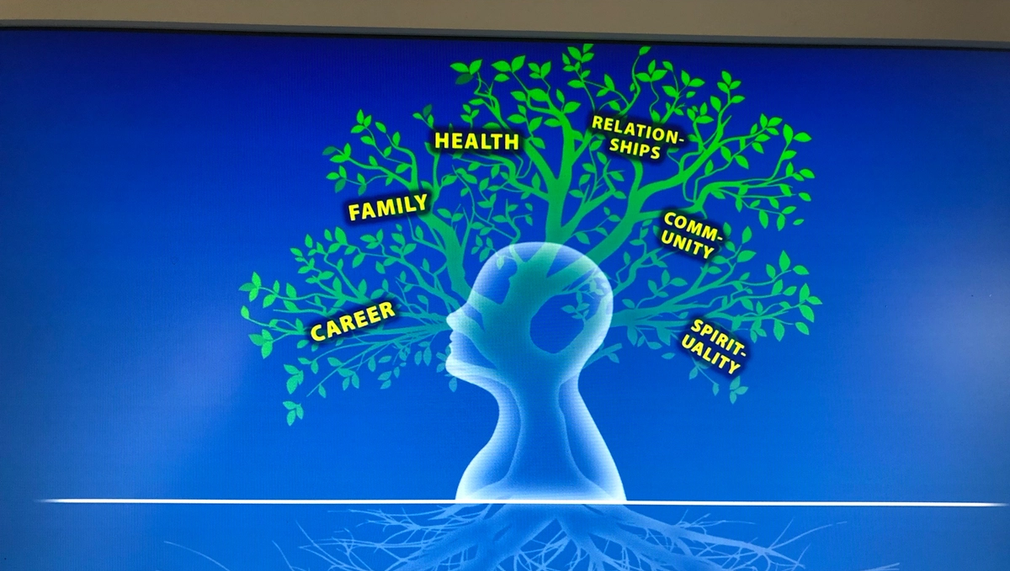Healthy Families / Healthy Communities
DLF's Healthy Families/Healthy Communities (HF/HC) program serves vulnerable families and school mental health providers living and working in underserved communities. HF/HC provides a tool for stress reduction for youth and their families experiencing extreme levels of anxiety and pressure. LA2050 grant funds will support our programming, ensuring students and their parents/guardians engage in a shared positive experience benefiting individual mental and physical health and creating an opportunity for increased connection within the family.

Please list the organizations collaborating on this proposal.
Los Angeles Unified School District (LAUSD) Student Health and Human Services (SHHS) Department
What is the primary issue area that your application will impact?
Community Safety
In which areas of Los Angeles will you be directly working?
Central LA
East LA
San Fernando Valley
South LA
West LA
In what stage of innovation is this project, program, or initiative?
Expand existing project, program, or initiative
What is your understanding of the issue that you are seeking to address?
Toxic stress has been identified as a broad causal factor in violence and criminal behavior [Bolland J.M. (2003); Askeland, I.R. & Heir, T. (2014); Hosie J., Gilbert F., Simpson K., & Daffern M. (2014)]. Stress and trauma experienced in childhood and adolescence contributes to risk factors associated with higher levels of violence and poor educational outcomes including low grades, suspensions and dropping out of school. Stress can cause, and often exacerbates impulsivity, anxiety, depression, anger, bullying, lack of motivation, low self- esteem, low self-control, ADHD, inability to think critically, and proclivity for substance abuse. Toxic stress activates the fight-or- flight response, causing the prefrontal cortex, responsible for judgment, decision-making, and impulse control, to be deactivated. Under conditions of chronic stress, the prefrontal cortex becomes smaller and less effective, which may contribute to violent behavior.
Describe the project, program, or initiative this grant will support to address the issue.
The primary risk factors our program addresses are stress and trauma, which health officials now recognize as a major public health epidemic. The core element of our program utilizes the Transcendental Meditation® (TM) technique, a powerful, evidence-based secular approach to effectively reduce toxic stress and strengthen brain integration. Published research establishes the impact of TM on reducing anxiety, depression, anger, low self-control, ADHD, substance abuse and criminal recidivism. The TM technique involves no focused attention or open monitoring, making it unique in its ability to reduce Post Traumatic Stress Disorder (PTSD) symptoms. (Weill Cornell Medical Center - New York Presbyterian Hospital in New York City) - where a pilot study of physicians found significant reductions in physician burnout, insomnia, and symptoms of post-traumatic stress over a three-month period practicing TM). There have been over 400 peer-reviewed, published studies conducted on TM verifying the physiological and psychological benefits of the practice for reducing stress and stress-related disorders, including anxiety, depression, hypertension, insomnia and heart disease. (https://www.davidlynchfoundation.org/research.html#education) Youth and their families will be referred to our LA team by social workers and clinicians from LAUSD’s Student Health and Human Services (SHHS) department and given the opportunity to learn TM.
Describe how Los Angeles County will be different if your work is successful.
HF/HC has shown to improve the overall mental and physical health, focus, academic achievement and parental engagement among the students and parents/guardians who choose to participate. The program is designed to ensure families engage in a shared positive experience and increased connection within the family. We have experienced similar outcomes in our work with youth/adults in LA over the last 11 years in LA. We expect his partnership with LAUSD SHHS will allow us to reach more youth and families needing mental health and wellness supports, and as a result, create a foundation for safer communities.
What evidence do you have that this project, program, or initiative is or will be successful, and how will you define and measure success?
It is our goal to create a successful and replicable community model using HF/HC. We will work with communities to support them achieving systemic change by providing the tool of TM for expanding potential and reducing mental and physical symptoms related to trauma and toxic stress, and therefore, decrease the tendency for violence. In a study, where the impact of TM on 9th grade students was examined, outcomes between students participating in the program and not participating were compared. Those who learned TM demonstrated lower anxiety and higher resilience compared to the students who did not participate. (Wendt, S.; Hipps, J.; Abrams, A; et al. Contemp School Psychol. 2015.) We are finalizing the design for a UCLA 2-year research study on TM and improved family life. Our research partner is: Todd Michael Franke, Ph.D. Professor Department of Social Welfare Chair, Doctoral Program UCLA Luskin School of Public Affairs UCLA Pritzker Center for Strengthening Children and Families
Approximately how many people will be impacted by this project, program, or initiative?
Direct Impact: 1,000
Indirect Impact: 2,000
Describe the specific role of the partner organization(s) in the project, program, or initiative.
DLF's partnership with LAUSD Local District Central covers a geographic area that includes Downtown, Historic Central Ave., MacArthur Park, Eagle Rock, Highland Park, Los Feliz, Jefferson/ South Central, Koreatown/Pico Union, Glassell Park and Vermont Square. There are 157schools in Local District Central that are eligible to participate in the program. LAUSD's SHHS department will be referring youth and their families to learn about TM through an introductory presentation by DLF staff, where the course will be explained, and research be presented on the benefits of daily practice. The SHHS department is providing meeting space for the introductory presentations and meeting rooms for the four-day TM trainings and follow up at nine of their Wellness Centers.